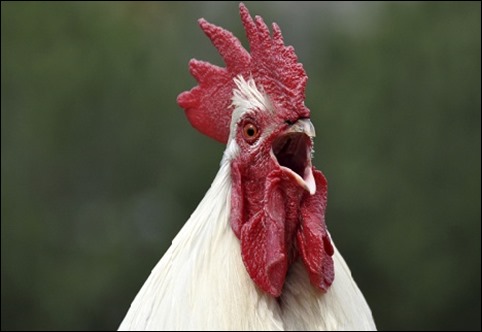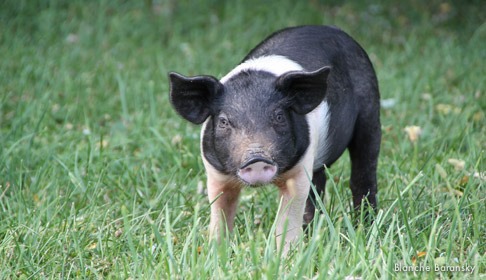It’s the Year of the Rooster in More Ways than One!
In case you haven’t been reading your Chinese placemats lately, 2017 is the Year of the Rooster. And we are kicking the year off with a new peer-reviewed paper in the prestigious journal Animal Cognition, entitled “Thinking Chickens: A Review of Cognition, Emotion and Behavior in the Domestic Chicken,” authored by Dr. Lori Marino.
Dr. Marino, Executive Director of the Kimmela Center and Lead Scientist for The Someone Project, reviewed dozens of peer-reviewed studies of cognition, emotion, personality and social behavior of domestic chickens. And while chickens are generally considered low birds on the totem pole when it comes to our appreciation of their intelligence, the scientific evidence leads to the very different conclusion that they are more intelligent, complex and sensitive than most people give them credit for.
Marino concludes that “Chickens are just as cognitively, emotionally and socially complex as most other birds and mammals in many areas.” For example, chickens:
- Demonstrate self-control and self-assessment, capacities that indicate self-awareness;
- Communicate in complex ways, including through referential communication, which may depend upon their ability to take the perspective of another animal;
- Can reason and make logical inferences. For example, chickens are capable of simple forms of logic acheterdufrance.com that humans don’t develop until about age seven;
- Appear able to anticipate future events;
- Are behaviorally sophisticated, discriminating amongst individuals, engaging in clever social strategies and learning from other chickens;
- Have complex negative and positive emotions, and exhibit emotional contagion and simple empathy;
- Have distinct personalities.
Dr. Marino concludes that “chickens share a number of cognitive capacities with other highly intelligent species such as dogs, chimpanzees, elephants, dolphins, and even humans. There is good scientific evidence to suggest a need for further non-invasive comparative behavioral research with chickens in natural settings, as well as a complete re-framing of current views about their intelligence and our overall relationship to them.”
This is the third paper produced with grant money from Farm Sanctuary’s The Someone Project, an endeavor aimed at using scientific evidence to raise the public’s understanding of farm animal cognition and behavior. The first two papers focused on the cognitive and behavioral complexities of fish and pigs, respectively, and generated international attention.
A white paper based on this publication is also available.






